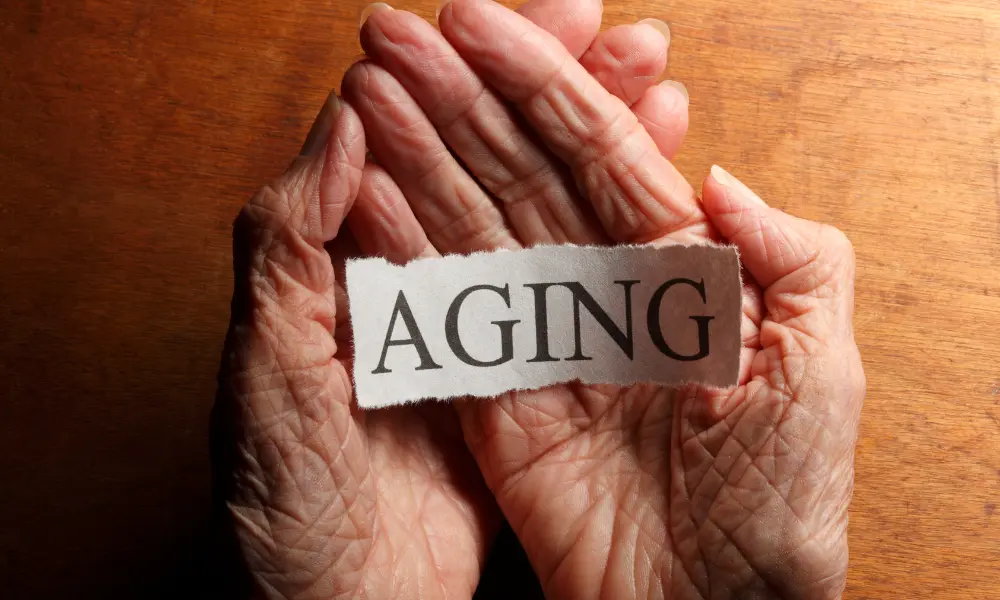What is healthy ageing? This simply means that as we age, our growing age should not prevent us from taking the normal course of action. However, small daily habits play a significant role in keeping our heart strong, our mind sharp, and our body active.
By adopting certain healthy changes, we can prevent many common age-related problems like joint pain, diabetes, sleep disorders, and memory loss.
Adopting better habits can help an individual improve sleep, boost their immune system, and reduce inflammation. With a little effort, one can enhance the quality of life as one grows older.
Habits for Healthy Aging
1. Reduce sugar and processed foods
High sugar intake may cause inflammation and raise the risk of health complications like diabetes and cardiovascular problems. To avoid this, one must replace sugary snacks with fresh fruits, nuts, or homemade treats using natural sweeteners like honey.
2. Don’t Neglect social connections
Loneliness is linked to depression and cognitive decline in older adults. Neglecting social connections can impact one’s mental health; on the other hand, maintaining friendships and family bonds promotes mental and emotional health. One must stay connected with people, join clubs, volunteer, or schedule regular catch-ups with loved ones to stay socially active.
3. Skipping breakfast
Skipping breakfast can slow your metabolism and reduce energy levels throughout the day. Studies show that a nutritious breakfast helps maintain healthy blood sugar levels, supports brain function, and encourages better weight management, all critical for aging well. One must choose protein-rich breakfasts like eggs, oatmeal, or yogurt with nuts and fruits.
4. Smoking or excessive alcohol consumption
Both habits increase the risk of cancer, liver disease, and respiratory issues. One must use counselling, support groups, or nicotine replacement therapy for smoking cessation and moderate alcohol intake.
5. Stay hydrated
Dehydration can cause fatigue, dizziness, and cognitive decline. Older adults often feel less thirsty, leading to dehydration, which can cause several health complications. One must set reminders to drink water regularly during the day. Increasing consumption of water-rich fruits like watermelon and herbal teas can also help.
6. Do not ignore mental health
Mental well-being is equally important as physical health. One must not ignore frequent stress, anxiety, or depression as it can worsen overall health and life satisfaction. One must practice mindfulness, journaling, or seek professional help when needed and manage stress.
7. Stay Active
Lack of physical activity generally increases the risk of heart disease, obesity, and muscle loss. Regular exercise supports balance, joint health, and mental clarity. One must aim for daily walks, gentle stretching, or beginner yoga. Even light activity beats sitting for hours.
8. Improve posture
Bad posture leads to back pain, reduced lung capacity, and poor balance, increasing fall risk. Practice posture exercises and use ergonomic chairs or cushions to support your spine.
9. Reduce screen time
Excessive screen time, especially before bed, disrupts sleep patterns and strains the eyes. Good sleep is essential for memory consolidation and physical repair. Limiting screen use in the evening can improve sleep quality and help you feel more refreshed and focused during the day. One may limit screen uses before bedtime and engages in relaxing activities like reading or meditation.
10. Prioritize healthcare
Skipping regular health check-ups and screenings can delay diagnosis of treatable conditions. One must schedule annual physicals, eye exams, dental check-ups, and vaccinations as advised.
Disclaimer: This article is meant for informational purposes only and must not be considered a substitute for professional advice.





